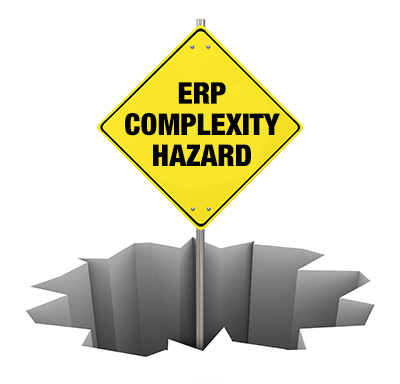
More and more manufacturing businesses are finding comfort in a single-system approach delivering more secure, long-term benefits. By deploying an ERP software that simplifies the complex, manufacturers can prevent unexpected and costly oversights including:
1. Complex Training — One system means one look and feel. A single-system ERP only requires users to learn a one set of business practices and one interface rather than dedicating significant time to understand multiple structures and technologies. When working with third-party modules, an increase in training time is necessary to fully understand the various tools.
2. Outdated Software — ERP providers roll out system updates to deliver the most relevant and updated functionalities to businesses. A single-system solution ensures that updates can be implemented quickly and efficiently, as only one platform needs to be revised. If business modules are bolted onto an ERP, there are increased opportunities for incompatibilities between the technologies. This often requires additional customizations to be done which many businesses forgo in order to avoid the additional costs and frustrations.
3. Inconsistent Data — It is critical for batch and process manufacturers to maintain accurate data. Should there be a recall or audit, relevant data needs to be accessed and exported in real-time. Working with one piece of software eliminates the need for duplicate data entry and in turn limits the opportunities for human or technical errors.
4. Lacking Support — A strong ERP company offers a high-level of support with IT experts to address issues and questions in a timely manner. Unfortunately, many vendors that operate with third party bolt-ons do not offer assistance for the external modules. In these cases, the user is often responsible to bridge the gap between the ERP provider and the third-party company. This unnecessary process often comes hand-in-hand with inconsistent information, surprise costs and a waste of valuable time.
5. Unforeseen Costs — As a result of the traditional ERP model, third-party modules can require costs that are never truly considered in the evaluation phase. Requirements for additional training, overall implementation, and continued customization are often an afterthought but can be a main cause for budget breaks. The single-system approach delivers increased transparency to limit or eliminate unexpected invoices all together. Businesses will want thoroughly investigate all potential costs throughout the ERP lifecycle before signing on the dotted line.
